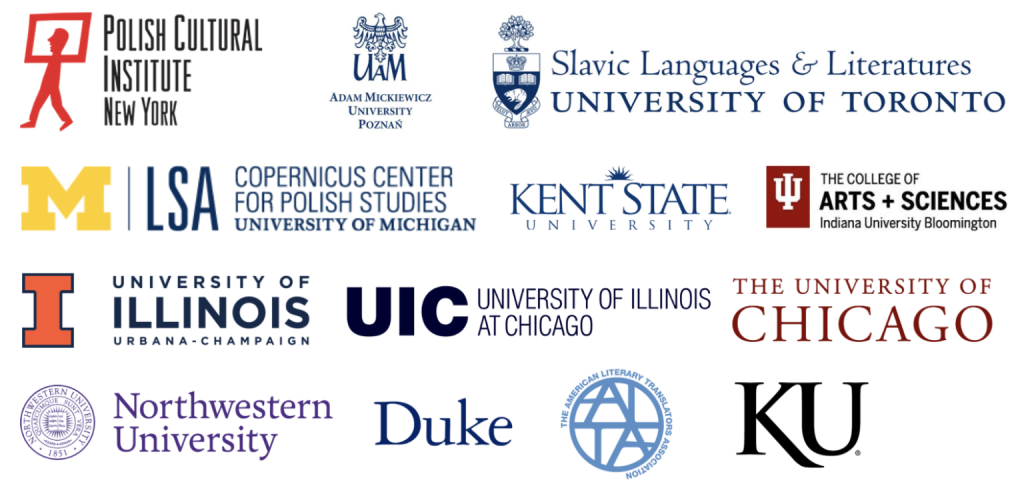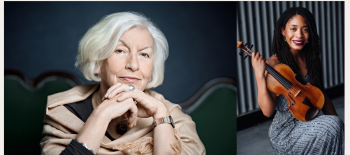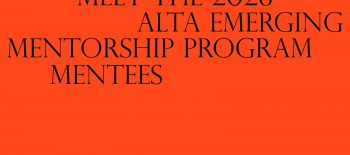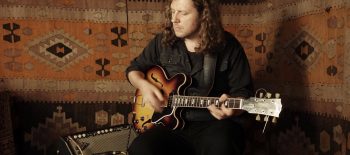Episode 19 and all video recordings are available at:
Polish Cultural Institute New York YouTube
Encounters with Polish Literature is a video series for anyone interested in literature and the culture of books and reading. Each month, host David A. Goldfarb will present a new topic in conversation with an expert on that author or book or movement in Polish literature. More about the Encounters with Polish Literature series and the timeline.
Our series on Polish-Ukrainian literary dialogue continues with this discussion of the work of Serhiy Zhadan (b. 1974), author of poetry and prose, and leader of the Kharkiv rock-poetry band, “Zhadan and the Dogs” (Жадан і собаки).
Nominated by the Polish Academy of Sciences in 2022 for the Nobel Prize in Literature, Zhadan began publishing his poems in the mid-1990s and stories in the early 2000s, and is the winner of the Jan Michalski Prize for Literature (2014), the Angelus Prize (2015), and the EBRD Literature Prize (2022), among others. Inspired early on by the avantgardism of the interwar period, he began to think of himself as a wartime poet after the initial Russian incursion into Ukrainian territory in 2014, and has been very active in the war effort and relief efforts in Kharkiv since the Russian invasion of February 24, 2022.
In this episode we focus on Zhadan’s poetry since 2014 collected in the anthology, A New Orthography, translated by our guests, John Hennessy and Ostap Kin. We discuss the process of translating poetry as a team, and the challenges for a poet in the target language translating another poet in the source language. We look at what it means for Zhadan to be a “wartime poet”—in his case chronicling the experiences of ordinary Ukrainians surviving as best they can—and why poets are needed in wartime, a topic that will return in our upcoming episode on Czesław Miłosz.
Selected works by Serhiy Zhadan in English translation:
Depeche Mode. Tr. Miroslav Shkandrij. London: Glagoslav Publications, 2013.
Mesopotamia. Prose tr. Reilly Costigan-Humes and Isaac Stackhouse Wheeler; verse tr. Viralna Tkacz and Wanda Phipps. New Haven: Yale University Press, 2018.
A New Orthography : Poems. Tr. John Hennessy and Ostap Kin. Sandpoint, Idaho: Lost Horse Press, 2020.
The Orphanage: A Novel. Tr. Reilly Costigan‑Humes and Isaac Stackhouse Wheeler. Yale University Press, 2021.
Voroshilovgrad. Tr. Isaac Stackhouse Wheeler and Reilly Costigan-Humes. Dallas: Deep Vellum, 2016.
What We Live For, What We Die For: Selected Poems by Serhiy Zhadan. Tr. Viralna Tkacz and Wanda Phipps. New Haven: Yale University Press, 2019.
Serhiy Zhadan’s facebook page (in Ukrainian, but you can translate with facebook’s translation feature)

John Hennessy is the author of two collections, Coney Island Pilgrims and Bridge and Tunnel, and his poems appear in many journals and anthologies, including The Believer, Best American Poetry, Harvard Review, The Huffington Post, Jacket, The New Republic, Poetry, The Poetry Review (UK), Poetry at Sangam(India), and Poetry Ireland Review. He is the co-translator, with Ostap Kin, of A New Orthography, selected poems by SerhiyZhadan, finalist for the PEN Award for Poetry in Translation, 2021, and co-winner of the Derek Walcott Prize, 2021, and the anthology Babyn Yar: Ukrainian Poets Respond (forthcoming from Harvard Library of Ukrainian Literature/HUP). Hennessy is the poetry editor of The Common and teaches at the University of Massachusetts, Amherst.
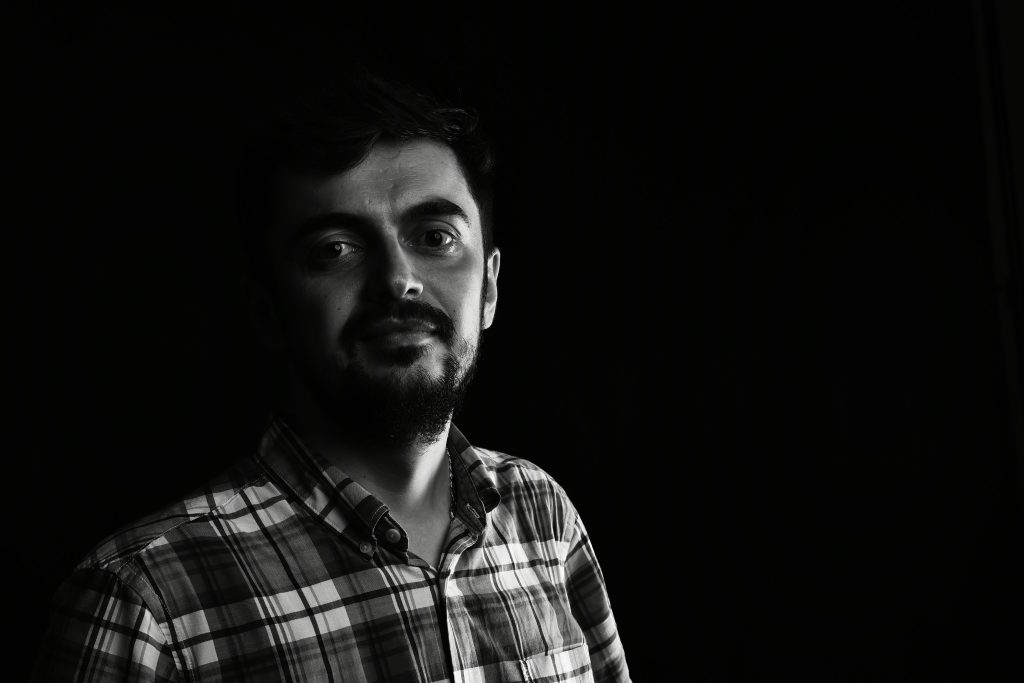
Ostap Kin is the editor, and co-translator with John Hennessy, of Babyn Yar: Ukrainian Poets Respond (forthcoming from Harvard Ukrainian Research Institute), the editor of New York Elegies: Ukrainian Poems on the City, and the co-translator, with John Hennessy, of Serhiy Zhadan’s A New Orthography, finalist for the PEN America Award for Poetry in Translation and co-winner of the Derek Walcott Prize for Poetry. He co-translated, with Vitaly Chernetsky, Yuri Andrukhovych’s Songs for a Dead Rooster, a collection of selected poems.
Bartek Remisko, Executive Producer
David A. Goldfarb, Host & Producer
Natalia Iyudin, Producer
